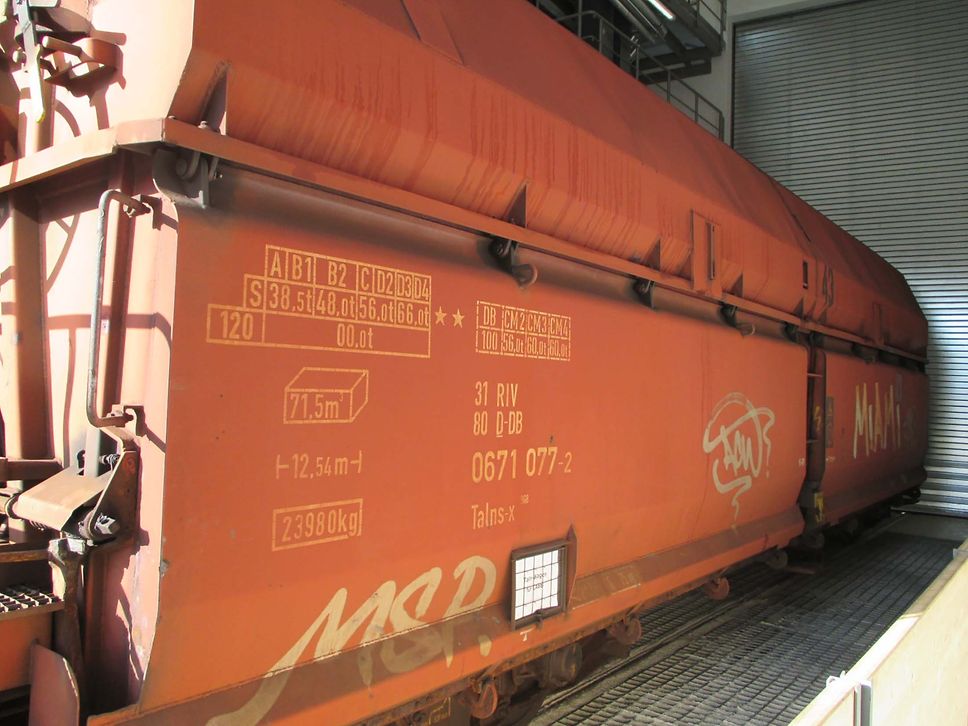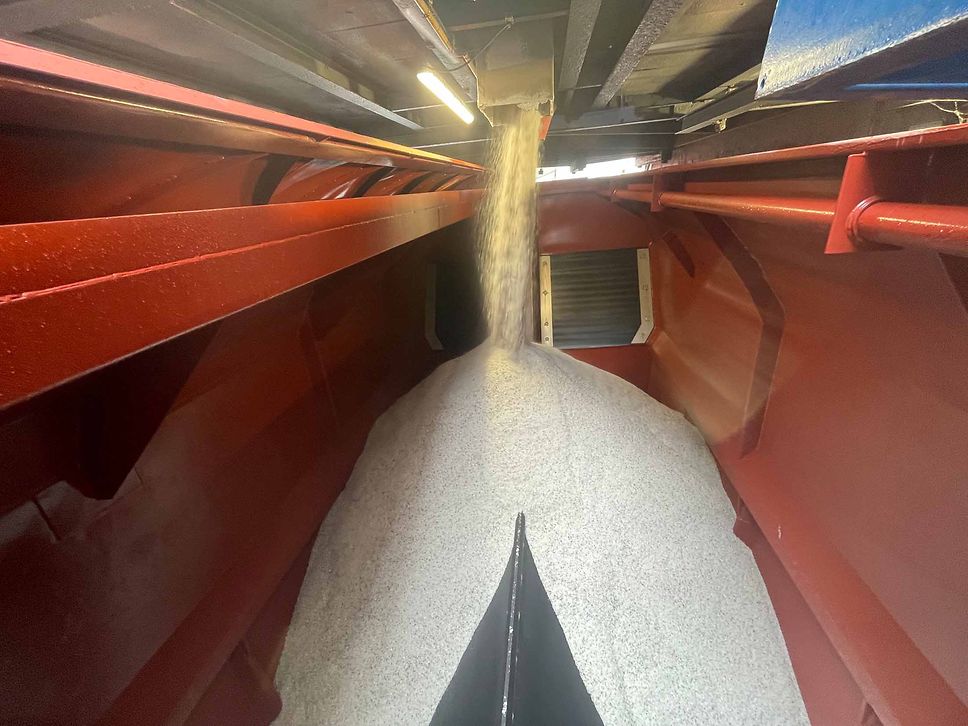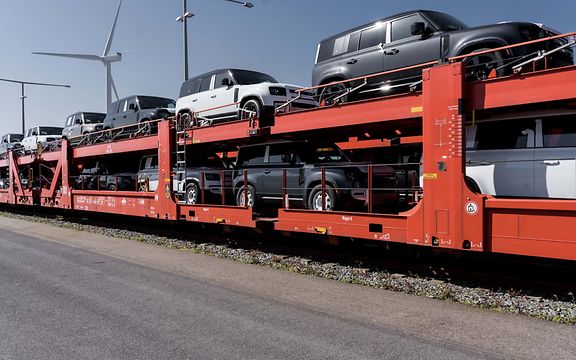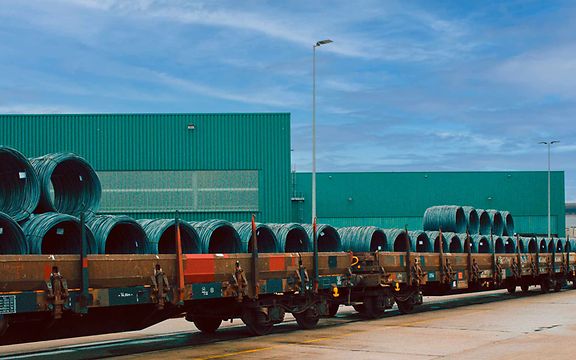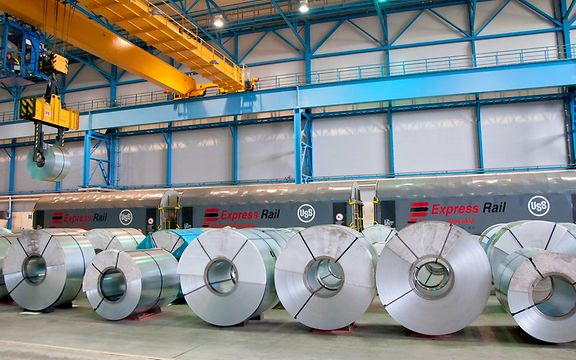Green logistics: Block train concept to achieve climate protection target
CABB and DB Cargo show how climate protection and improved performance can go hand in hand.
The principle is clear: the more goods that are transported by rail, the better for the climate. Many companies are therefore working on making their transport chain more sustainable. Often, like the chemical company CABB, they are teaming up with a strong partner such as DB Cargo to help them do so.
Corporate goal: Achieve 100% rail freight transport
Since 2003, CABB GmbH has relied on the expertise of DB Cargo to transport salt from its Heilbronn plant to the town of Gersthofen near Augsburg. Up until summer 2022, the product was largely transported by single wagon freight, with a residual quantity going by road. CABB wanted to shift this portion to rail while at the same time increasing its overall salt transport volume. The plan was to produce a higher output while at the same time protecting the climate. Such a lofty goal required not only the will but also the infrastructure to match.
Optimum use of private sidings
And that was the case at CABB: both the salt plant in Heilbronn and the processing plant in Gersthofen are equipped with their own private siding. Based on these foundations, along with the customer's desire to transport as much as possible by rail, DB Cargo was able to establish a block train concept. At the salt plant in Heilbronn, the salt is loaded directly into covered bulk freight wagons. Then, at its destination in Gersthofen, the "white gold" is tipped out of the wagons onto a conveyor system that goes straight to production without the need for any intermediate storage. There is simply no better way to utilise the existing infrastructure.
Block train concept effective for climate protection and transport volume
So, were the targets of "climate protection" and "higher output" achieved? "Yes, we were able to significantly increase the transport volume compared with 2021 while at the same time achieving a noticeable reduction in our total CO2e emissions," says Jürgen Schneider, Global Head of Logistics and PD at CABB. Switching to the block train concept in summer 2022 has already saved over 350 tonnes of CO2e emissions compared with 2021. In 2023, salt will be transported by block train all year round. The CO2e savings are therefore likely to increase again.
The transport volume has also substantially increased since CABB started using block trains. In 2022 alone, the volume was up by 26% compared with 2021 when the "old" concept was still in use for the first half of the year. The benefits of a block train concept are impressive right across the board: transport is easier to plan, journeys are faster as there is no need to route them via marshalling yards, and a sufficiently large freight wagon fleet is available to ensure the requested services can be provided.
Thanks to the excellent cooperation between the partners, satisfaction levels on both sides are very high: "Salt transports are running smoothly and CABB was able to achieve its ambitious targets by partnering with us," says Maximilian Görlich, the account manager for CABB at DB Cargo BTT. This example demonstrates that achieving climate protection targets while maximising transport volumes works best with DB Cargo.
